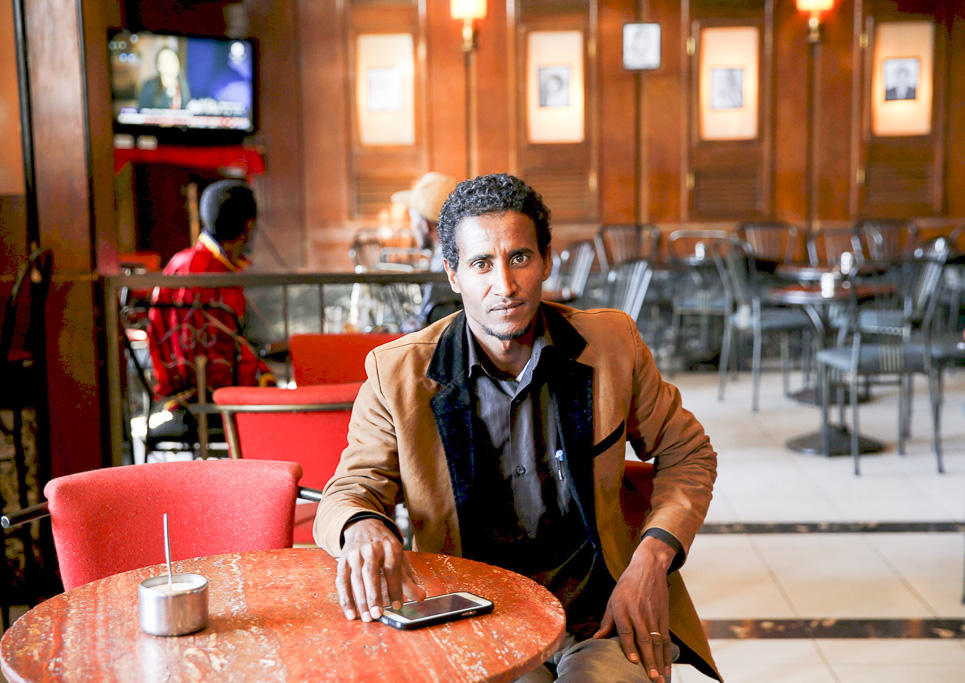
You might also like:
A patron sits inside the coffee shop in the foyer of the Roma Cinema on Samatat Avenue in Eritrea’s capital Asmara, February 20, 2016. Thomas Mukoya / Reuters










In an often forgotten corner of the Horn of Africa, Eritrea’s capital boasts one of the world’s finest collections of early 20th century architecture and the authorities want it declared a UNESCO World Heritage Site.
When Italy’s colonial experiment in Eritrea ended in 1941, it left behind an array of Rationalist, Futurist, Art Deco and other Modernist styles in Asmara, a city whose historic heart has changed little since the Italians lived and worked there.
In following decades, conflict ravaged Eritrea, leaving the nation isolated and stifling development. But the violence by-passed the city, and the capital has never been swamped by the kind of construction that raced ahead elsewhere in Africa.
A Reuters photo essay at http://reut.rs/1UQi38U shows elegant avenues still flanked by the Art Deco Cinema Impero, the imposing lines of the Education Ministry that once housed the Fascist party headquarters and the Futurist Fiat Tagliero garage with gravity-defying concrete cantilevered wings, extending 15 meters either side without the support of pillars.
Italian architects used what had been an amalgamation of highland villages centuries earlier as “an ideal blank canvas”, according to UNESCO’s description, to practice what were, at the time, some of the world’s most avant garde designs.
Italians nicknamed it “La Piccola Roma” or “Little Rome”.
“The city is very intact and maintains its original character,” said Medhanie Teklemariam, coordinator for the Asmara Heritage Project, which has drawn up an inventory of about 4,300 buildings in Asmara’s historic perimeter.
The nomination dossier for World Heritage Site status was submitted to UNESCO this year, with a decision expected in 2017.
If approved, Asmara would benefit from technical assistance, helping renovate and preserve the historic buildings, which include offices, government buildings and homes.
World Heritage Site status could also draw visitors to a barely trodden tourist trail. Eritrea has soaring mountains and a long Red Sea coast, but no international hotel chains.
The authorities have also carefully protected the architectural assets, adhering to 1938 building regulations. New planning regulations are being drawn up but some rules, such as limiting buildings to 60 meters high, are likely to remain.
“If we are going to exceed above this height, I think we are going to destroy the skyline of Asmara,” said Medhanie.
The Italians left their mark in other ways. Pizza and pasta are almost national dishes – and expertly cooked.
Italians also brought cycle racing to Eritrea and it has become a national passion – images of Eritrean cyclist Daniel Teklehaimanot who wore the King of the Mountains jersey in the 2015 Tour de France are plastered in hotels and shops.
Street-side cafes are filled with the grumble and hiss of polished coffee machines serving up espressos and macchiatos.
Seeking to mirror the bigger and older empires of Britain and France, Eritrea was Italy’s route “to enter the big business of imperialism,” said Federico Niglia, a history professor at Luiss University in Rome.
Coinciding with a period when there was an “explosion of art” in Italy, Asmara’s architecture was one way to show off Italy’s approach to colonial management, he added.
But Italy’s ambitions lay beyond Eritrea, which was seen as simply the starting point of a far grander empire in East Africa. It had long had its eyes on Ethiopia next door, a nation it briefly occupied from 1936 until it was ejected in 1941.
Unlike Asmara, a city Italians shaped during several decades there, Addis Ababa’s soaring skyline and rapid expansion have overshadowed the few reminders of Ethiopia’s brush with Italian rule.
Source: skift.com



